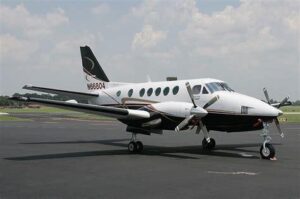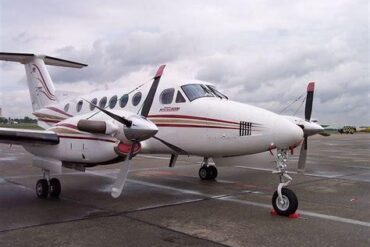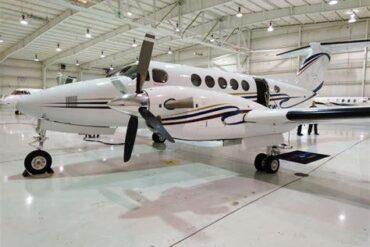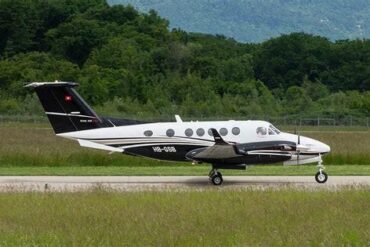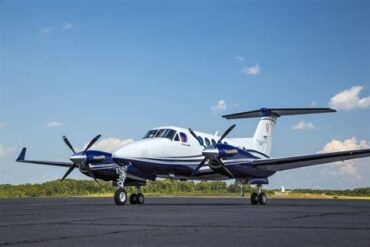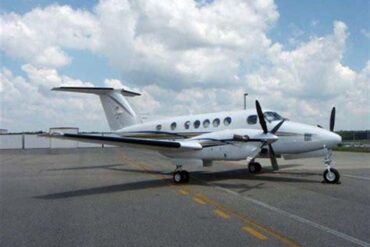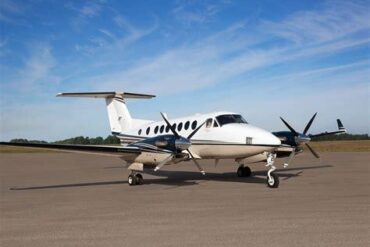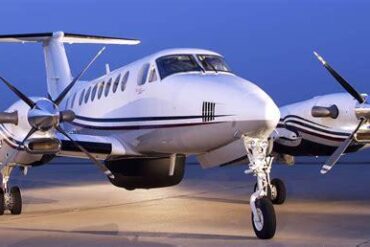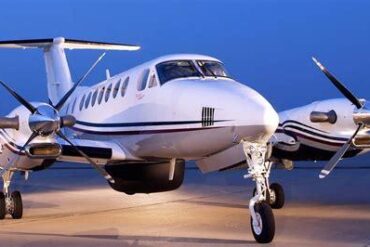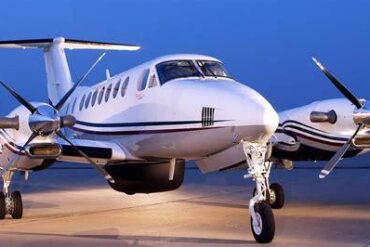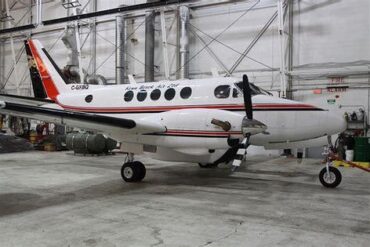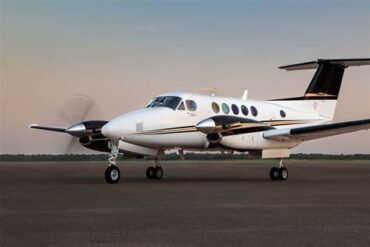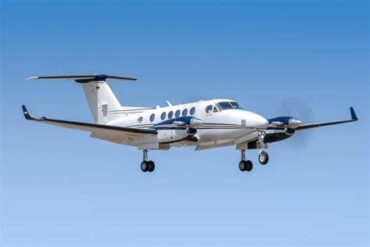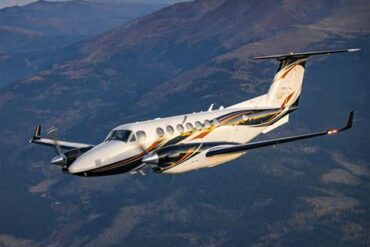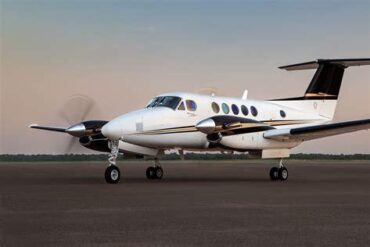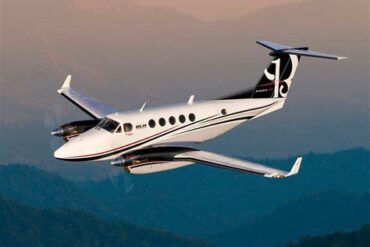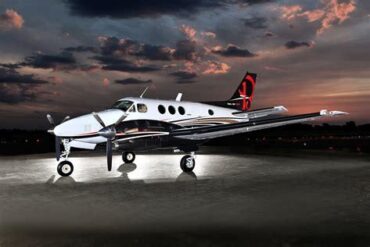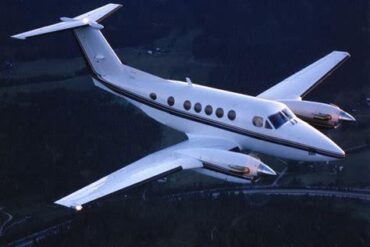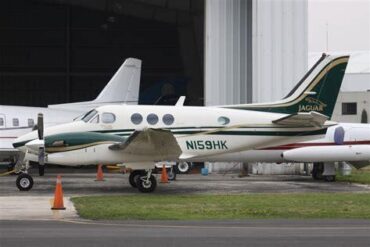The Beechcraft King Air B100 is a renowned twin-turboprop aircraft, widely recognized for its exceptional performance, reliability, and versatility. As businesses and private owners increasingly look to invest in aviation, understanding the price and operating costs of the King Air B100 becomes paramount. This article aims to provide a comprehensive overview of these factors, enabling potential buyers to make informed decisions.
Overview of the Beechcraft King Air B100
First introduced in the late 1970s, the Beechcraft King Air B100 has carved out a niche as one of the most popular aircraft in its class. With a maximum range of approximately 1,400 nautical miles and a cruise speed of around 250 knots, it caters to both corporate and private aviation needs. Its spacious cabin can comfortably accommodate up to eight passengers, making it an ideal choice for business trips or family travel.
Key Features and Specifications
-
Engines: The B100 is powered by two PT6A-28 turboprop engines, each producing 850 shp, providing impressive climb rates and performance.
-
Cabin Dimensions: The interior cabin measures about 16 feet long, 4.5 feet wide, and 4.8 feet high, offering ample space for passengers.
-
Payload Capacity: The aircraft has a maximum payload capacity of approximately 2,500 lbs, allowing for considerable cargo or luggage.
-
Avionics: Equipped with modern avionics suites, the King Air B100 ensures enhanced safety and navigation capabilities.
Pricing of the Beechcraft King Air B100
When considering the purchase of a Beechcraft King Air B100, potential buyers should be aware of the various pricing factors involved. The cost of a used B100 can range significantly based on factors such as age, condition, maintenance history, and upgrades. Typically, one can expect to pay between $700,000 and $1.5 million for a pre-owned model.
Factors Influencing Purchase Price
-
Age and Condition: Newer models with lower flight hours generally command higher prices. A well-maintained older model can still fetch a premium if it has undergone significant upgrades.
-
Maintenance History: Aircraft with a comprehensive maintenance record tend to be more desirable. Buyers should seek out documentation that verifies regular inspections and any repairs performed.
-
Upgrades and Modifications: Aircraft equipped with advanced avionics, enhanced interiors, or improved performance modifications can see their prices increase substantially.
-
Market Trends: The general demand for turboprop aircraft can fluctuate based on economic conditions, affecting the overall pricing landscape.
Operating Costs of the Beechcraft King Air B100
Understanding the operating costs associated with the King Air B100 is crucial for budgeting and financial planning. Operating costs encompass various expenses, including fuel, maintenance, insurance, crew salaries, and hangar fees. On average, the operating costs can range from $1,500 to $2,500 per flight hour.
Breakdown of Operating Costs
1. Fuel Costs
Fuel expenses are one of the most significant operating costs. The King Air B100 burns about 30-40 gallons per hour of Jet A fuel. At an average fuel price of $5 per gallon, this translates to approximately $150 to $200 per hour in fuel costs. Given its efficiency and range, the B100 offers competitive fuel consumption compared to other aircraft in its class.
2. Maintenance Costs
Regular maintenance is essential for ensuring the longevity and safety of the King Air B100. Maintenance costs can vary widely depending on usage and adherence to recommended service schedules. Owners should anticipate an annual maintenance budget of approximately $50,000 to $100,000, which includes routine inspections, parts replacement, and any necessary repairs. Additionally, unforeseen repairs can arise, so setting aside a contingency fund is advisable.
3. Insurance Costs
Insurance is another critical component of operating expenses. The cost of insurance for the King Air B100 typically ranges from $10,000 to $25,000 annually, depending on coverage levels, pilot experience, and the aircraft’s value. Engaging with an experienced aviation insurance broker can help ensure adequate coverage at a competitive price.
4. Crew Salaries
For operators requiring a crew, salaries represent a significant expense. A typical salary for a Captain flying the King Air B100 may range from $70,000 to $120,000 per year, while Co-Pilots might earn between $50,000 and $80,000. Costs can further escalate if hiring additional crew members for larger operations or specific missions.
5. Hangar and Storage Fees
The location of hangar facilities significantly impacts storage costs. On average, hangar fees can range from $500 to $2,000 per month, depending on the airport and region. Access to premium hangar facilities can enhance security and maintenance opportunities but often comes at a premium cost.
Cost-Efficiency of the Beechcraft King Air B100
Despite the initial investment and operating costs, the Beechcraft King Air B100 remains a cost-effective solution for many operators. Its ability to operate in short runways expands access to smaller airports, reducing travel time and overall costs associated with ground transportation. Furthermore, the B100’s fuel efficiency and relatively low maintenance requirements contribute to its reputation as a reliable and economical choice.
Comparative Analysis with Similar Aircraft
When evaluating the King Air B100, it’s beneficial to compare it with similar aircraft in its category, such as the Pilatus PC-12 and Cessna 208 Caravan. While the PC-12 offers single-engine operation and slightly lower operating costs, it lacks the multi-engine safety redundancy that the King Air B100 provides. In contrast, the Cessna 208 may have lower purchase costs but does not match the King Air’s performance specifications.
Conclusion
In conclusion, the Beechcraft King Air B100 stands out as a premier choice for those seeking a reliable, versatile, and high-performance aircraft. Understanding its purchase price and operating costs is essential for prospective buyers and operators. While the initial investment may seem substantial, the operational efficiencies, combined with its impressive capabilities, render the King Air B100 a wise choice in the world of aviation. By carefully considering all associated costs, owners can ensure they maximize their investment while enjoying the numerous benefits this exceptional aircraft has to offer.
